Is it safe to drink water from a reverse osmosis filtration system at home?
In recent years, as people's requirements for drinking water quality have increased, reverse osmosis (RO) filtration systems have gradually entered the home market. As an efficient water purification technology, reverse osmosis systems are widely advertised as being able to provide pure and safe drinking water.
However, when many families consider installing a reverse osmosis filtration system, there is still a key question: Is the water treated by this system really safe? This article will explore the safety of reverse osmosis filtration systems for home drinking from multiple perspectives, including technical principles, advantages, potential problems and expert opinions.
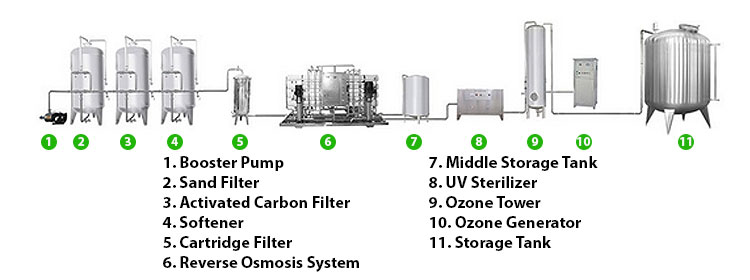
What is the technical principle of the reverse osmosis filtration system?
Reverse osmosis is a filtration technology that removes impurities from water through a semi-permeable membrane. Specifically, the reverse osmosis membrane allows water molecules to pass through, but blocks most pollutants such as dissolved salts, organic matter, bacteria and viruses.
1. Working principle:
Reverse osmosis systems usually include the following main steps:
● Pre-filtration: The raw water first passes through a pre-filter to remove larger particles and suspended matter.
● Reverse osmosis membrane filtration: The pre-filtered water passes through a reverse osmosis membrane under high pressure to remove most dissolved substances and microorganisms.
● Post-treatment: Water filtered through the reverse osmosis membrane sometimes needs further treatment, such as removing odors through activated carbon filters or replenishing minerals through mineralized filters.
● Water storage and distribution: The treated pure water is stored in pressure tanks and is ready for home use at any time.
2. Filtration efficiency:
The pore size of the reverse osmosis membrane is very small (about 0.0001 microns), which can effectively remove more than 99% of dissolved salts, microorganisms and most organic matter. Compared with traditional water filters, the reverse osmosis system has significant advantages in purifying water quality.
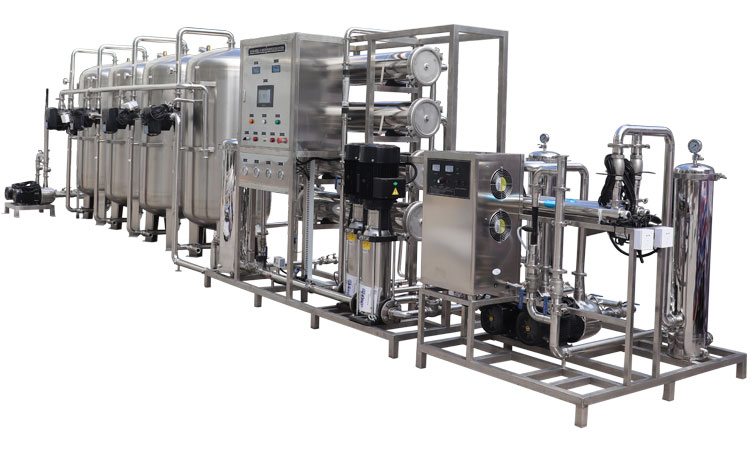
What are the advantages of the reverse osmosis filtration system?
1. Efficient removal of pollutants
The reverse osmosis system can effectively remove various pollutants in the water, including:
● Dissolved salts: such as sodium, calcium, magnesium ions.
● Organic matter: such as pesticide residues, volatile organic compounds (VOCs).
● Microorganisms: such as bacteria, viruses, spores.
The removal of these pollutants helps reduce potential health risks in drinking water.
2. Improve taste and smell
The reverse osmosis system can remove chlorine, chloramines and other odorous substances in water, significantly improving the taste and smell of drinking water and making it more palatable.
3. Improve drinking water safety
The reverse osmosis system can remove heavy metals (such as lead, mercury, arsenic), nitrates and other harmful substances in water. The reverse osmosis system can provide safer drinking water, especially for sensitive groups such as infants, pregnant women and the elderly.
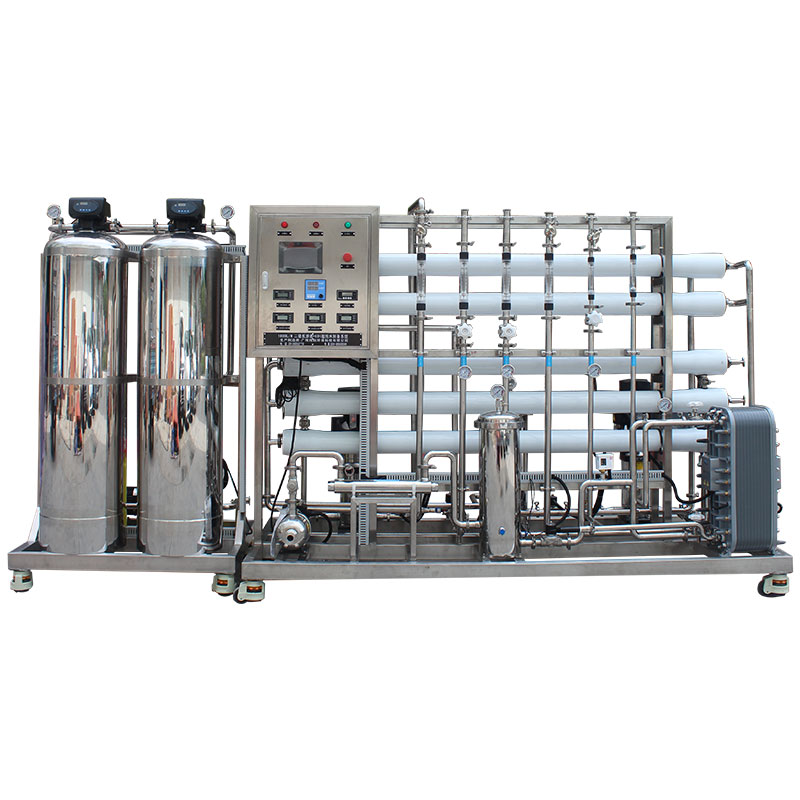
What are the problems with reverse osmosis filtration systems?
Although the reverse osmosis system has many advantages, there are also some potential problems that users need to pay attention to when using it.
1. Waste of water resources:
The reverse osmosis system will produce a certain amount of wastewater during the filtration process. Usually, for every liter of pure water processed, 3-4 liters of wastewater will be produced. This not only increases the waste of water resources, but may also bring additional water costs.
2. Removal of beneficial minerals:
While removing harmful substances, the reverse osmosis system will also remove beneficial minerals in the water, such as calcium and magnesium. These minerals play an important role in human health. Long-term drinking of pure water lacking minerals may lead to nutritional deficiencies.
3. System maintenance:
The reverse osmosis system requires regular maintenance, including replacement of pre-filters, reverse osmosis membranes, and post-treatment filter cartridges. Improper maintenance or untimely replacement of filter cartridges may lead to reduced filtration effects and even bacterial growth, affecting water quality safety.
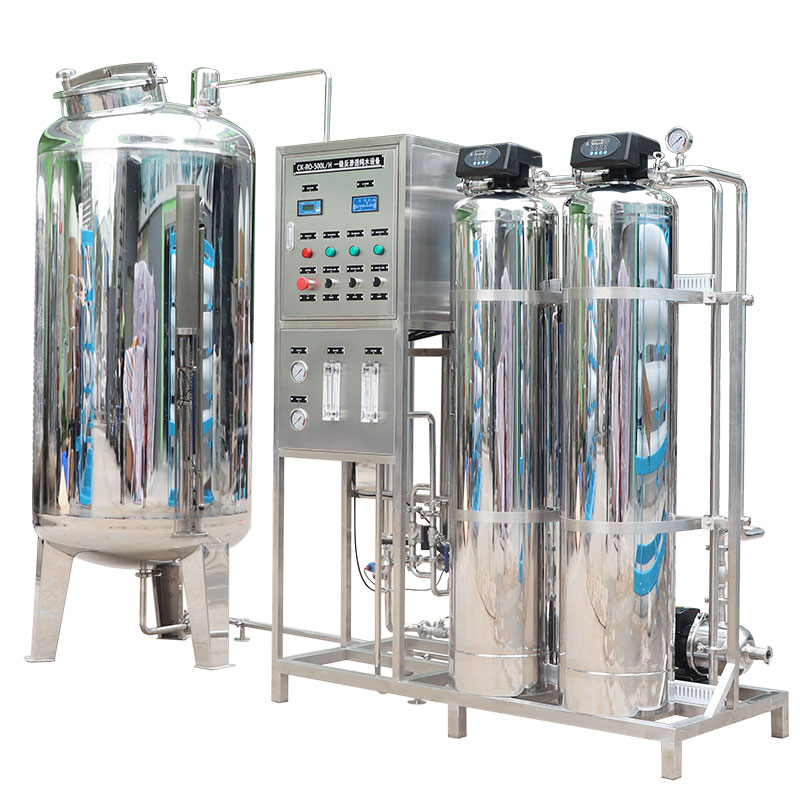
Expert opinion
In order to have a more comprehensive understanding of the safety of reverse osmosis filtration systems, we interviewed several experts in the field of water treatment.
1. Li Minghua, Professor of Environmental Engineering, Tsinghua University
Professor Li pointed out: "Reverse osmosis technology has significant advantages in removing pollutants from water, especially in removing heavy metals and organic pollutants. However, users need to pay attention to system maintenance and wastewater treatment during use. The problem of removing beneficial minerals can be solved by adding mineralized filters in the post-treatment stage."
2. Wang Xiaomei, Professor of School of Public Health, Peking University
Professor Wang emphasized: "The pure water provided by the reverse osmosis system is very suitable for drinking and cooking, especially for sensitive groups such as infants and pregnant women. However, long-term drinking of mineral-deficient water may have an impact on health, so it is recommended that users can supplement minerals, or drink a moderate amount of mineral-rich natural water while drinking reverse osmosis water."
3. Engineer of a well-known water treatment equipment company Zhang Wei
Engineer Zhang suggested: "When choosing a reverse osmosis system, users should choose a reputable brand and perform maintenance in strict accordance with the instructions. Regularly replace the filter element and reverse osmosis membrane to ensure the normal operation of the system. At the same time, for the wastewater generated, it can be considered for cleaning, flushing toilets and other purposes to reduce water waste."
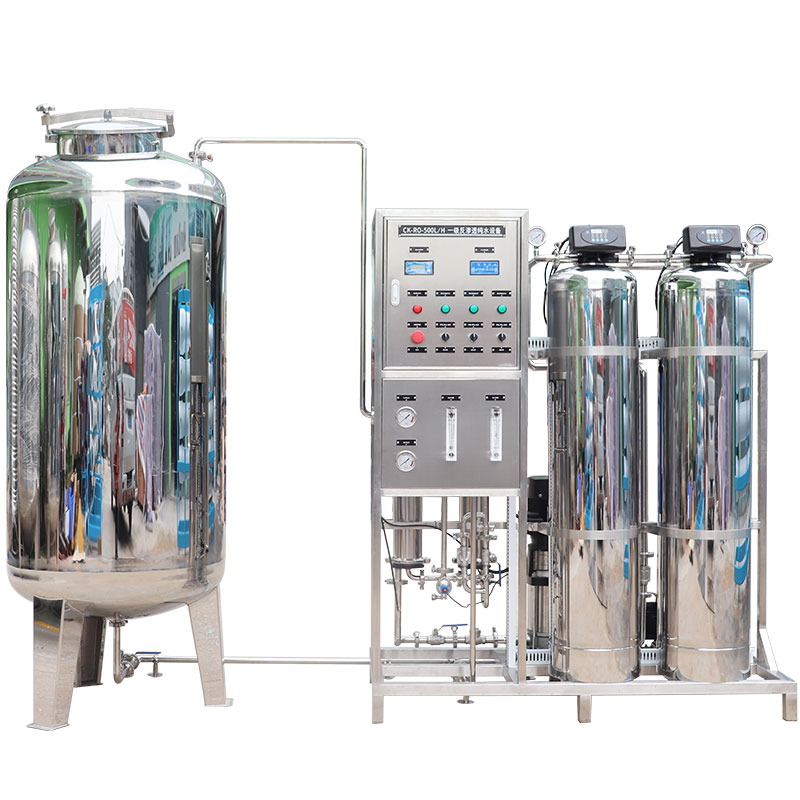
Conclusion
Based on the above analysis, the household drinking reverse osmosis filtration system has significant advantages in providing high-quality pure water, and its water quality safety has also been widely recognized. However, users should pay attention to the following points during use:
1. Choose the right brand and model: Choose a reputable brand and a model that suits the needs of the family to ensure the quality and performance of the system.
2. Regular maintenance: Regularly replace the filter element and reverse osmosis membrane to ensure the normal operation of the system and water quality safety.
3. Treat wastewater: Rationally treat the wastewater generated by the reverse osmosis system to reduce water waste.
4. Supplement minerals: Appropriately supplement minerals, or choose a reverse osmosis system with a mineralized filter element to ensure the nutritional balance of drinking water.
Through reasonable use and maintenance, the household drinking reverse osmosis filtration system can provide safe and pure drinking water for the family and significantly improve the quality of life.




